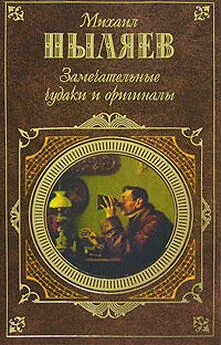Адам Грант - Оригиналы
- Название:Оригиналы
- Автор:
- Жанр:
- Издательство:ACT, CORPUS
- Год:2019
- ISBN:978-5-17-097449-8
- Рейтинг:
- Избранное:Добавить в избранное
-
Отзывы:
-
Ваша оценка:
Адам Грант - Оригиналы краткое содержание
Оригиналы - читать онлайн бесплатно полную версию (весь текст целиком)
Интервал:
Закладка:
13 Marian Friestad and Peter Wright. The Persuasion Knowledge Model: How People Cope with Persuasion Attempts // Journal of Consumer Research 21 (1994): 1-31.
14 Личные интервью автора с Руфусом Грискомом, 29 января и 26 февраля 2015.
15 TeresaM. Amabile. Brilliant But Cruel: Perceptions of Negative Evaluators 11 Journal of Experimental Social Psychology 19 (1983): 146–156.
16 See R. Glen Hass and Darwyn Linder. Counterargument Availability and the Effects of Message Structure on Persuasion 11 Journal of Personality and Social Psychology 23 (1972): 219–233.
17 Norbert Schwarz, Herbert Bless, Fritz Strack, Gise-la Klumpp, Helga Rittenauer-Schatka, and Annette Simons. Ease of Retrieval as Information: Another Look at the Availability Heuristic 11 Journal of Personality and Social Psychology 61 (1991): 195–202.
18 Elizabeth L. Newton. Overconfidence in the Communication of Intent: Heard and Unheard Melodies // Ph. D. dissertation, Stanford University (1990); Chip Heath and Dan Heath. Made to Stick: Why Some Ideas Survive and Others Die. New York: Random House, 2007.
19 John P. Kotter. Leading Change. Boston: Harvard Business School Press, 1996.
20 Ro BERT В. Z ajonc. Attitudinal Effects of Mere Exposure / / Journal of Personality and Social Psychology Monographs 9 (1968): 1-27.
21 Robert F. Bornstein. Exposure and Affect: Overview and Meta-Analysis of Research, 1968–1987 // Psychological Bulletin 106 (1989): 265-89; Robert B. Zajonc. Mere Exposure: A Gateway to the Subliminal H Current Directions in Psychological Science 10 (2001): 224–228; Eddie Harmon-Jones and John J.B. Allen. The Role of Affect in the Mere Exposure Effect: Evidence from Psychophysi-ological and Individual Differences Approaches // Personality and Social Psychology Bulletin 27 (2001): 889–898.
22 Theodore H. Mita, Marshall Dermer, and Jeffrey Knight. Reversed Facial Images and the Mere-Exposure Hypothesis II Journal of Personality and Social Psychology 35 (1977): 597–601.
23 Личное интервью автора с Говардом Таллманом, 16 декабря 2014.
24 Ethan R. Burris, James R. Detert, and Dan S. Chiabu-ru. Quitting Before Leaving: The Mediating Effects of Psychological Attachment and Detachment on Voice 11 Journal of Applied Psychology 93 (2008): 912–922.
25 Caryl E. Rusbult, Dan Farrell, Glen Rogers, and Arch G. Mainous IIL Impact of Exchange Variables on Exit, Voice, Loyalty, and Neglect: An Integrative Model of Responses to Declining Job Satisfaction // Academy of Management Journal 31 (1988): 599–627; Michael J. Withey and William H. Cooper. Predicting Exit, Voice, Loyalty, and Neglect // Administrative Science Quarterly 34 (1989): 521–539.
26 Subrahmaniam Tangirala and Rangaraj Ramanujam. Exploring Nonlinearity in Employee Voice: The Effects of Personal Control and Organizational Identification // Academy of Management Journal 51 (2008): 1189–1203.
27 Fred O. Walumbwa and John Schaubroeck. Leader Personality Traits and Employee Voice Behavior: Mediating Roles of Ethical Leadership and Work Group Psychological Safety // Journal of Applied Psychology 94 (2009): 1275–1286.
28 Tiziana Cascario and Miguel Sousa Lobo. Competent Jerks, Lovable Fools, and the Formation of Social Networks // Harvard Business Review June (2005): 92–99.
29 Jeffrey A. LePine and Linn Van Dyne. Voice and Cooperative Behavior as Contrasting Forms of Contextual Performance: Evidence of Differential Relationships with Big Five Personality Characteristics and Cognitive Ability // Journal of Applied Psychology 86 (2001): 326–336.
30 Robert Sutton. Porcupines with Hearts of Gold // BusinessWeek, July 14, 2008, www.businessweek.com/business_at_work/bad_boss-es/'archives/2008/ о 7/porcupines jwith.html.
31 Stephane Сотё and Debbie S. Moskowitz. On the Dynamic Covariation between Interpersonal Behavior and Affect: Prediction from Neuroticism, Extraversion, and Agreeableness // Journal of Personality and Social Psychology 75 (1998): 1032–1046.
32 Zhen Zhang, Mo Wang, and Junqi Shi. Leader-Follower Congruence in Proactive Personality and Work Outcomes: The Mediating Role of Leader-Member Exchange // Academy of Management Journal 55 (2012): 111–130; см. также Nathanael J. Fast, Ethan R. Burris, and Caroline A. Bartel. Managing to Stay in the Dark: Managerial Self-Efficacy, Ego Defensiveness, and the Aversion to Employee Voice // Academy of Management Journal 57 (2014): 1013–1034; Mark J. Somers and Jose C. Casal. Organizational Commitment and Whistle-Blowing: A Test of the Reformer and the Organization Man Hypotheses // Group & Organization Management 19 (1994): 270–284.
33 George C. Homans. The Human Group. New York: Harcourt, Brace, 1950 и Social Behavior: Its Elementary Forms. New York: Harcourt, Brace, and World, 1961.
34 Личные беседы с Ларри Пейджем 15 и 16 сентября 2014.
35 Damon J. Phillips and Ezra W. Zuckerman. Middle-Status Conformity: Theoretical Restatement and Empirical Demonstration in Two Markets // American Journal of Sociology 107 (2001): 379–429.
36 Anne M. Koenig, Alice H. Eagly, Abigail A. Mitchell, and Tuna Ristikari. Are Leader Stereotypes Masculinef A Meta-Analysis of Three Research Paradigms // Psychological Bulletin 127 (2011): 616–642.
37 Sheryl Sandberg and Adam Grant. Speaking While Female // New York Times, January 12,2015, www.nytimes.com/2015/ 01/ 11/opinion / Sunday / speaking-while-female.html, Adam M. Grant. Rocking the Boat But Keeping It Steady: The Role of Emotion Regulation in Employee Voice // Academy of Management Journal 56 (2013): 1703–1723.
38 Victoria L. Brescoll. Who Takes the Floor and Why: Gender .; Power, and Volubility in Organizations // Administrative Science Quarterly 56 (2011): 622–641.
39 Ethan R. Burris. The Risks and Rewards of Speaking Up: Managerial Responses to Employee Voice 11 Academy of Management Journal 55 (2012): 851–875.
40 Taeya M. Howell, David A. Harrison, Ethan R. Burris, and James R. Detert. Who Gets Credit for Input? Demographic and Structural Status Cues in Voice Recognition 11 Journal of Applied Psychology, в ближайшем номере (2015).
41 Jens Mazei, Joachim Huffmeier, Philipp Alexander Freund, Alice F. Stuhlmacher, Lena Bilke, and Guido Hertel. A Meta-Analysis on Gender Differences in Negotiation Outcomes and Their Moderators // Psychological Bulletin 141 (2015): 85-104; Emily T. Amanatullah and Michael W. Morris. Negotiating Gender Roles: Gender Differences in Assertive Negotiating Are Mediated by Womens Fear of Backlash and Attenuated When Negotiating on Behalf of Others 11 Journal of Personality and Social Psychology 98 (2010): 256–267; Hannah Riley Bowles, Linda Babcock, and Kathleen L. McGinn. Constraints and Triggers: Situational Mechanics of Gender in Negotiation // Journal of Personality and Social Psychology 89 (2005): 951–965.
42 Ashleigh Shelby Rosette. Failure Is Notan Option for Black Women: Effects of Organizational Performance on Leaders with Single Versus Dual-Sub ordinate Identities 11 Journal of Experimental Social Psychology 48 (2012): 1162–1167.
43 Robert W. Livingston, Ashleigh Shelby Rosette, and Ella F. Washington. Can an Agentic Black Woman Get Ahead? The Impact of Race and Interpersonal Dominance on Perceptions of Female Leaders // Psychological Science 23 (2012): 354–358.
44 Личное интервью автора с Донной Дубински, 20 июня 2014; Todd D. Jick and Mary Gentile. Donna Dubinsky and Apple Computer; Inc. (A) // Harvard Business School, Case 9-486-083, December 11, 1995.
45 Walter Isaacson. Steve Jobs. New York: Simon & Schuster, 2013. [рус. изд.: Уолтер Айзексон. Стив Джобс . М., Corpus, 2017.]
46 Albert О. Hirschman. Exit, Voice, and Loyalty: Responses to Decline in Firms, Organizations, States. Cambridge, MA: Harvard University Press, 1970.
47 Thomas Gilovich and Victoria Husted Medvec. The Temporal Pattern to the Experience of Regret // Journal of Personality and Social Psychology 67 (1994): 357–365, and The Experience of Regret: What, When , яия? Wifry // Psychological Review 102 (1995): 379–395.
Глава
4.
Поспешишь
–
людей
насмешишь
1 Clarence В. Jones. Behind the Dream: The Making of the Speech That Transformed a Nation. New York: Palgrave Macmillan, 2011; Coretta Scott King. My Life with Martin Luther King ., Jr. New York: Henry Holt & Co., 1993; Drew Hansen. The Dream: Martin Luther King, Jr, and the Speech That Inspired a Nation. New York: Harper Perennial, 2005; Carmine Gallo. How Martin Luther King Improvised “I Have a Dream” // Forbes, August 27, 2013, www.forbes.com/sites/carminegallo/2013/08/ 27/ public-speaking-how-mlk-improvised-second-half-of-dream-speech ; Frank Hagler. 50 Incredible Facts – and Photos – from the March on Washington // Policy.Mic, August 28, 2013, mic.com/articles/60815/50-incredible-facts-and-photos-from-the-march-on-washington\ David J. Gar-row. Bearing the Cross: Martin Luther King, Jr., and the Southern Christian Leadership Conference. New York: William Morrow, 1986.
2 If I Had More Time, I Would Have Written a Shorter Letter // Quote Investigator , April 28, 2012, quoteinvestigator.com/2012/04/28!shorter-letter.
3 Jihae Shin. Putting Work Off Pays Off: The Hidden Benefits of Procrastination for Creativity , рукопись на рецензировании, 2015.
4 William A. Pannapacker. How to Procrastinate Like Leonardo da Vinci // Chronicle Review, February 20, 2009.
5 Rena Subotnik, Cynthia Steiner, and Basanti Chakraborty. Procrastination Revisited: The Constructive Use of Delayed Response // Creativity Research Journal 12 (1999): 151–160. Ut Na Sio and Thomas C. Ormerod. Does Incubation Enhance Problem Solving? A Meta-Analytic Review // Psychological Bulletin 135 (2009): 94-120.
6 Peggy Noonan. The Writing of a Great Address //Wall Street Journal, July 5, 2013, www.wsi.com/articles/SB1000142412y88y3245qq404 578583991319014114; Ronald C. White, Jr. The Eloquent President: A Portrait of Lincoln Through His Words. New York: Random House, 2011.
7 Blum A Zeigarnik. Das Behalten erledigter und unerledigter Han-dlungen // Psychologische Forschung 9 (1927): 1-85; cm. Kenneth Savitsky, Victoria Husted Medvec, and Thomas Gilov-ich, Remembering and Regretting: The Zeigarnik Effect and the Cognitive Availability of Regrettable Actions and Inactions 11 Personality and Social Psychology Bulletin 23 (1997): 248–257.
8 Donald W. MacKinnon. The Nature and Nurture of Creative Talent И American Psychologist 17 (1962): 484–495, and Personality and the Realization of Creative Potential 11 American Psychologist 20 (1965): 273–281.
9 Adam M. Grant, Francesca Gino, and David A. Hofmann. Reversing the Extraverted Leadership Advantage: The Role of Employee Proactivity 11 Academy of Management Journal 54 (2011): 528–550.
Читать дальшеИнтервал:
Закладка:










